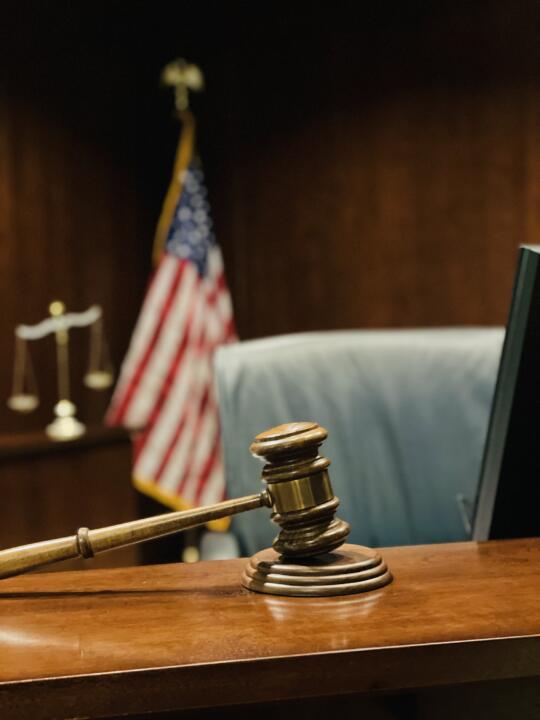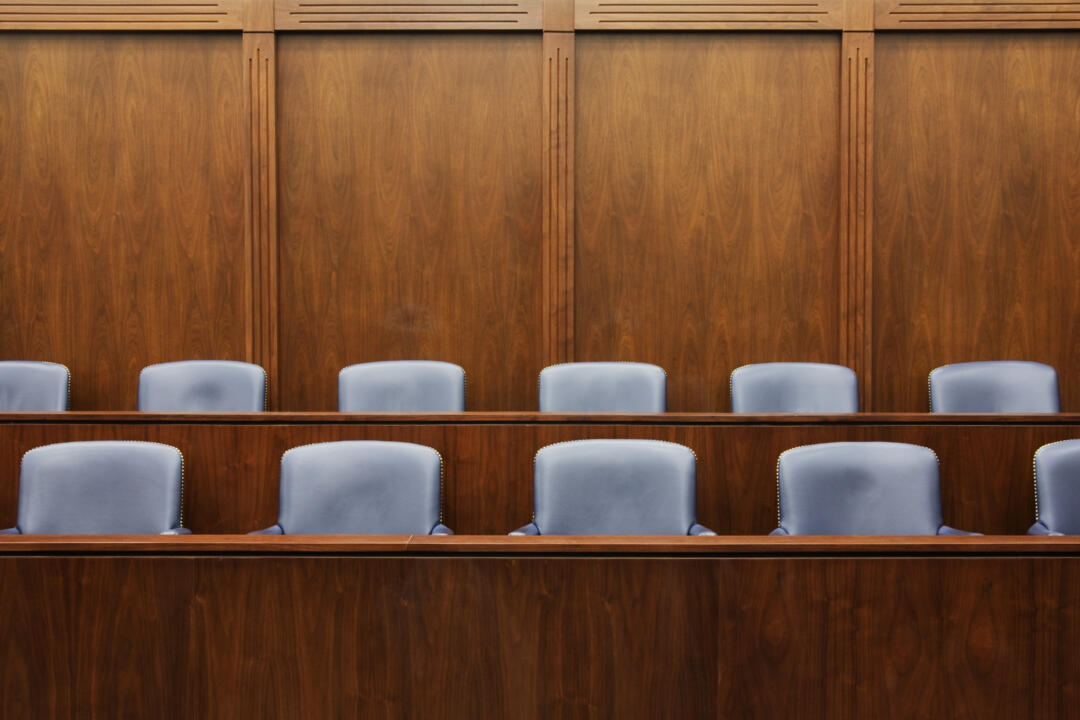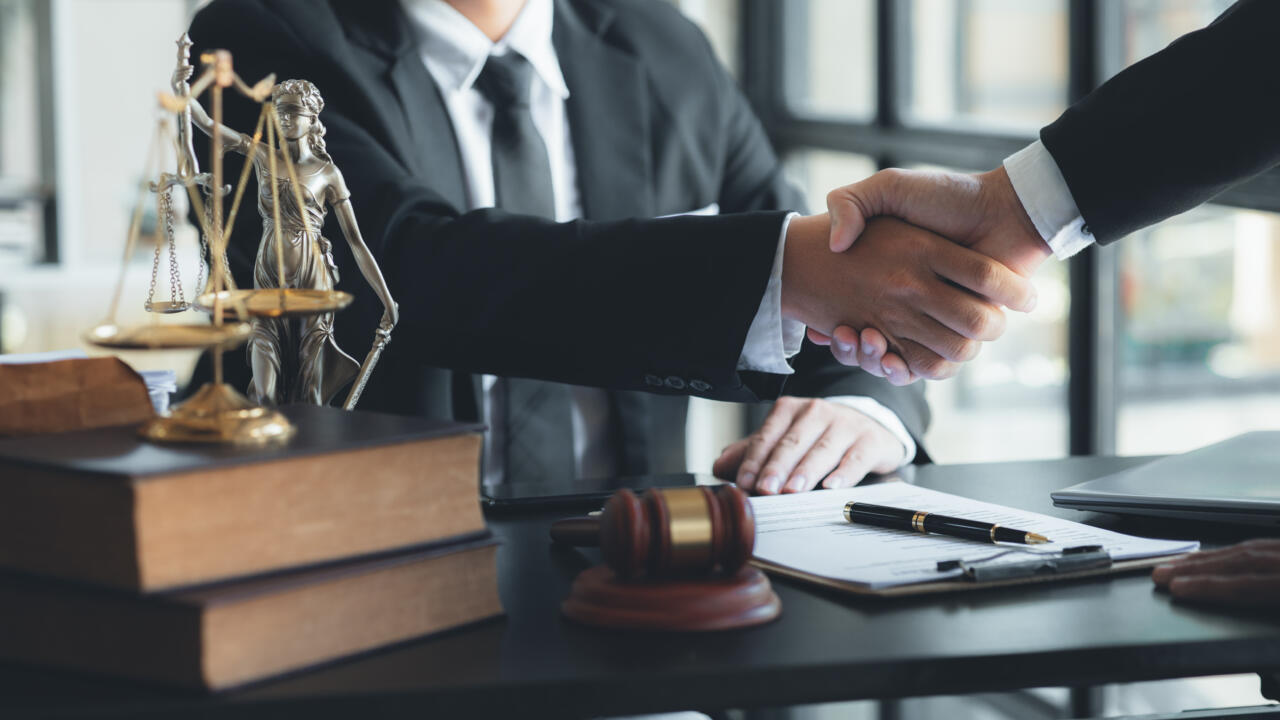
All people deserve justice and deserve to be seen for their humanity. There are many obstacles that can stand in the way of justice. In this article, we want to focus on one particular challenge: implicit bias in the courtroom.
Perception.org describes Implicit bias as “when we have attitudes towards people or associate stereotypes with them without our conscious knowledge.”
Before we jump in, let us be clear: all people have biases.
We are not saying that anyone is wrong or bad for having biases. The human brain is designed to look for patterns for mental efficiency. The problem with this is that our views of the world and the people in it affect how we show up to one another.
It is our job to pursue justice for all of our clients. To do this, we must recognize and navigate the potential bias that our clients may face.
Navigating Potential Discrimination Against Motorcyclists
- “He was probably popping a wheelie down the interstate.”
- “I wouldn’t be surprised if he was lane splitting, driving between cars, causing chaos on the road.”
- “If you’re not wearing a helmet, don’t be surprised when something bad happens.”
- These are biases some people have about motorcyclists.
We’ve represented many bikers over the years. They are good folk who sustained injuries while riding a motorcycle. And when we step into the courtroom and are before a jury, we must understand the potential biases the jurors may have.
Otherwise, at best, we’ll get a mediocre result for our client. At worst, we lose, and our client isn’t compensated.

Why Bias is Relevant in the Courtroom
The task of jurors is to hear both sides in a case and then cast judgment. For example, when someone is injured, jurors decide whether our client should get any financial compensation.
That compensation covers medical bills, lost wages, and more.
- Injuries can steal the livelihood of folk harmed in a serious accident.
- An individual can lose the ability to do the things they love.
- They may have lost their capacity to do their job and provide for their family.
Accidents and Injuries – The Role of Insurance Companies
If someone else caused the injury, Florida law can hold them responsible. Accidents are why we have insurance. We are humans, and mistakes happen on the road. Insurance companies are bringing in billions of dollars each month. They get paid that money so that when there is an accident, the insurance company will pay to help those harmed.
In a perfect world, insurance companies would pay the full value of injuries when it happens. But the reality is quite different. Insurance companies know they can offer a smaller amount of money, and some people will accept it because they simply need the money. However, once that happens, those harmed can no longer sue in the future, even if that small sum isn’t enough to cover their bills.
Insurance companies often think they can get away without paying the full value of the injuries suffered by our clients. They likely believe that jurors will side with the insurance company. Or, at the very least, jurors will award less than the lawyer is seeking for their client.
Bikers as an Example of Bias in the Courtroom
Above, we cited some common sentiments about bikers.
A jury may believe our client is reckless before they hear our story. Our job is to help jurors see the truth of the situation: our client was harmed, and the insurance company is responsible to pay the FULL COMPENSATION, not partial value.
In other words, recovery might cost our client $100,000, and the insurance might say they should only have to pay $10,000. As you can imagine, our client is unlikely to be able to pay their bills if the jury doesn’t order the insurance company to pay the full value.
Because of natural implicit bias, jurors might think our client doesn’t deserve to get any financial help before they hear any testimony or experts. As the attorney, it would be reckless to ignore that bias.
It’s not just the jurors, though. We must recognize the bias that the defense attorneys may put forward.
Once we get in front of a jury, we need to ensure that they understand what this case is about. It isn’t about whether or not some bikers are reckless. Instead, this case concerns whether the opposing side caused our client’s injuries. That’s it.
Ignoring Bias Risks Losing for Our Client
As attorneys, it’s our job to truthfully tell the story of our client’s experience. No good attorney is fabricating information. A lawsuit isn’t about trying to squeeze the insurance company. Going to court is about showing the full extent of our client’s harm so that the client is fully compensated by the insurance company for ALL of the damages. This is what we refer to as full justice, not partial justice.
If a jury thinks that our client is probably reckless, like some think of motorcyclists, they will filter everything we say through that lens.
Many Ways to Address Bias in the Courtroom
Before a trial starts, lawyers ask questions of people called in for jury duty (this process is called “Voir Dire”). In this process, we attorneys narrow the potential jurors down to the ones who will participate in the trial. We want to identify people who might hold a particular bias against my client before we’ve even started giving evidence.
There’s no way to eliminate all bias. That’s not necessary or practical.
Connecting with the jury and helping them focus on the heart of the case is necessary. The heart of every case is this: was our client (the plaintiff) harmed as a result of the other parties involved?
As attorneys, we cannot ignore potential bias.
We also don’t judge jurors for having their views.
Navigating bias isn’t about telling jurors or lawyers or witnesses that they’re wrong or bad people. Our job is to help people see that bias exists and must be separated from decision-making.
Identifying Potential Biases Against our Clients
We’ve all heard the phrases, “I don’t see color” or “I don’t see gender.”
When it comes to representing our clients, we cannot not see race, gender, or other identities. If we attempt to act as though our clients will be treated fairly and that their identities are irrelevant, we are doing a massive disservice to our clients.
We would go so far as to argue that we are harming our clients if we ignore any aspect of their identity.
If our client is deaf, they need an interpreter in the courtroom. Some people may have implicit bias and think that folk who are deaf are unintelligent. And this bias can lead people to believe my client should be compensated less.
You and we both know that just because a person does not hear as others do does not mean they are less intelligent.
Another example is clients with cognitive disabilities. It would be careless as an attorney not to understand that this must be seen and understood.
How a person’s brain or body functions should never be relevant when deciding who is at fault.
The same applies to someone’s race, ethnicity, or country of origin. If there is a potential bias in a jury because the person is black or Hispanic, we must recognize this. Both to ensure that we can provide a great experience to our clients and to give us the best shot at winning in the courtroom.
The LGBTQ+ community is another group that faces various biases. It doesn’t matter how jurors vote in elections and their personal views on the gay and trans communities. However, it does matter if they filter their jury duties through their personal opinions.
If we have a transwoman injured in a car accident, do you think the insurance company wants to go to trial? Probably. Do they think a jury is less likely to side with the transwoman? Absolutely!
The insurance company’s attorneys are most likely betting on this.
Further, the insurance company might be more likely to deny any reasonable offer for settlement. Especially when they think they can pay our client less than the full value if they go before a jury.
A person’s identity cannot be part of the equation. All people deserve justice and deserve that we see them for their humanity. Despite this, a person’s identity naturally becomes part of the process because we all have biases. Thus, it is our job as attorneys to recognize the potential bias and navigate the process accordingly.
If we act as if “we don’t see gender” and ignore the fact that our trans-client is likely to face discrimination in the process, we are dismissing relevant data. We are not doing our jobs as their lawyers.
This same scenario can be swapped out for an individual who is of Cuban descent and speaks very little English. Again, some jurors may have views on a person who is seeking financial compensation and doesn’t speak English fluently.
Jurors might have loved ones who are out of work and view immigrants as the reason for this. Others might have had a negative experience in the past with an immigrant. Still, others might have immigrated to the US and worked hard to learn the language.
Navigating bias in the courtroom isn’t about telling people how to think and feel outside the courtroom. And, if we are representing someone who doesn’t speak English well, we must address the potential prejudice.
All of this is similar to representing a motorcyclist who has sustained an injury in a crash. While they have to navigate each type of potential bias differently, the responsibility of an attorney is the same.
As attorneys, we are dedicated to seeing our client’s unique human experience, walking into the courtroom, and seeking justice. This is only possible when we recognize the biases that exist in the world. And yes, good people on juries have their own biases. This isn’t a statement of judgment. It is about knowing what potential obstacles are in the path of our clients get financial help to cover their bills.

Picking a Lawyer who will truly help you Pursue Justice
When someone has been harmed in an accident, all we can do, unfortunately, is pursue financial compensation. For example, let’s say someone slips and falls at a dance club. And let’s say the facility doesn’t take proper care of cleaning the floors. It is then the club’s insurance company that should take care of that injured person.
It’s common for our clients to have complex conditions requiring years of treatment. Medical care can cost hundreds of thousands of dollars, sometimes millions.
Further, because of the injury and medical bills, clients might exhaust their savings and be unable to work as much or at all. The piling up of medical bills can result in other bills falling behind.
It’s our job to fight for our clients to get the most compensation they possibly can. These funds can help them start to put their life back together. Though, in most situations, life will never be the same.
When the insurance company’s lawyers think that there will be bias against my client, they are likely to do two things:
- Attempt to leverage perceived bias by offering smaller settlements.
- Push to go to trial to leverage perceived community bias in the courtroom.
Let’s say we are representing a gay couple injured in an accident. Their medical bills and time off of work to recover will cost roughly $250,000.
Because it is a gay couple, the insurance company’s lawyers might look at a political map and see our area is politically “red.” They might think, “I bet jurors in this area won’t give a gay family significant money.”
Bias in the Courtroom vs. Potential Settlement
Going to trial costs the insurance company money (to pay for their defense attorneys), so they might offer our clients a ridiculously low amount of $25,000.
We would certainly recommend against accepting this offer. However, it is our responsibility to communicate this to our clients. The caveat is that if the client takes it, they will also have to sign papers that say they cannot sue for more money in the future.
Let’s assume we have good evidence that our client is facing future costs in an amount of ten times what the insurance company offers. We will therefore let our client know our recommendation as they make a decision.
We only receive a payment if we help our clients get their compensation (money to cover bills, time off work, and more). Thus, there is a lot of motivation to fight for our clients.
The insurance company’s lawyers may be calculating that we are anxious about going to trial. They might think that we have concerns about potential jury bias against our client. And sadly, some lawyers buy into this fear and advise clients to settle for less.
Some injury lawyers might tell their clients, “This is a good deal. It’s as good as you’re going to get.” While thinking to themselves, I don’t think we can win in court because you’re gay.
Here’s the deal: it is possible to lose at trial because of bias in the courtroom.
However, we know the people of Tampa, Orlando, Winter Haven, Lakeland, Polk County, Plant City, Brandon, and Central Florida. Yes, many here vote for Republicans. Some defense attorneys may think that data works in their favor in the courtroom.
Here’s what I know of the people in Florida: they care about justice, humanity, and the promises they make. That’s why, with an intentional trial strategy, the jury can see the humanity of my clients and disregard their biases to deliver a fair verdict.
Some attorneys might take a case where bias will be relevant. However, they might not be confident (or competent) in navigating bias. Thus, they might encourage their clients to settle rather than go to trial.
This is why you not only need an attorney who will joyfully serve anyone from any background who has sustained an injury. You need someone who understands bias and how it plays out in a lawsuit and is willing to go to trial if need be.
Takeaways
We have taken a while to talk about the different ways bias is relevant in an injury lawsuit. If you’re like us, you probably want an attorney who will treat you kindly. You want someone who sees your unique identity and values your humanity. However, being a good person is not going to win a lawsuit.
I recommend seeking an attorney who can see your unique lived experiences. Also, they need to see how that will impact your pursuit of financial help to cover your injuries.
We recommend seeking an attorney who can see your unique lived experiences. Also, they need to see how that will impact your pursuit of financial help to cover your injuries.
Biases are real. They’re normal. And they can impact every step of a lawsuit.
Some lawyers might treat you kindly but fear taking your case to trial because of biases. They might recommend you take a settlement that isn’t going to cover your needs. Or if they do go to trial, they might not have plans and strategies for helping the jury see that their biases cannot be a part of their decision-making.
We are not saying you need to hire the attorneys at the Brooks Law Group. You might prefer to go to someone who shares specific identities with you. If you’re like us, you probably want to hire someone that you feel good about. If that means hiring someone who looks like you or shares the same faith, language, or something else, then do that!
We are here for you!
Our team is here to serve all Floridians who have been injured. We won’t pretend to fully understand everyone’s unique lived experiences, but we have much experience navigating the court processes. Our attorneys have a lot of experience in representing good folk with diverse backgrounds and succeeding both pre-suit, once a suit is filed, and going to trial and winning. We have represented so many folks from so many backgrounds.
And we love and value all humans.
Whether you’re
- a biker injured on the road
- an immigrant harmed by someone driving drunk
- or a member of the LGBTQ+ community who lost a loved one in a wrongful death.
We’ve got your back!
If you would like to talk with us, it would be an honor for us to have the opportunity. Also, who says you need to hire the first attorney you talk to? Give us a call, and we can chat! You deserve a law firm that leaves you feeling respected and valued as a human. We’re happy to be part of your process in pursuing a good attorney who can give you the best representation possible.














